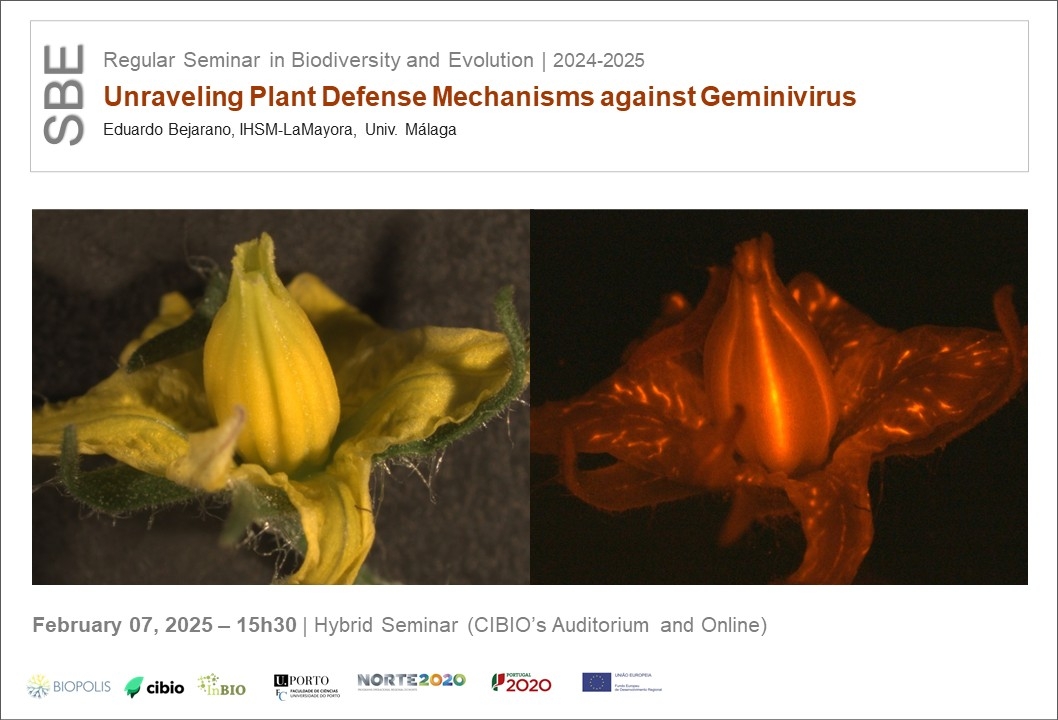Unraveling Plant Defense Mechanisms against Geminivirus
Event
REGULAR SEMINAR IN BIODIVERSITY AND EVOLUTION
February 07th, 2025
Eduardo Bejarano, IHSM-LaMayora, Univ. Málaga | 15h30 | Hybrid Seminar

REGULAR SEMINAR IN BIODIVERSITY AND EVOLUTION
Geminiviruses pose a major threat to global agriculture, severely compromising crop productivity and food security. Among these pathogens, Tomato yellow leaf curl virus (TYLCV) stands out as one of the most devastating, causing extensive yield losses in tomato crops worldwide. To mitigate its impact, developing effective resistance strategies is critical, and advancing our understanding of plant defense mechanisms is key to engineering durable, virus-resistant cultivars.This presentation explores the molecular basis of TYLCV resistance, focusing on three pivotal resistance genes—Ty-1, Ty-2, and Ty-5—that confer protection through distinct mechanisms:
• Ty-1 enhances plant immunity by amplifying RNA-directed DNA methylation (RdDM), a process that silences viral DNA by targeting its replication.
• Ty-2, a dominant resistance gene, encodes a receptor-like kinase (RLK) that detects viral invasion early, activating a cascade of robust defense responses.
• Ty-5, a recessive gene, disrupts viral proliferation by hijacking RNA decay pathways to degrade viral transcripts, effectively halting infection.
By unraveling these independent resistance pathways, this work illuminates the intricate molecular interplay between TYLCV and its host.
I hold a Biological Sciences degree from the and a PhD in Biology. I conducted postdoctoral research at the Imperial College London, working on geminivirus molecular genetics. In 1993 I joined the Yeast Genetics group at the University of Málaga (UMA). By 1997, they initiated research on plant viruses. I currently serve as a university professor at UMA and Director of IHSM "La Mayora" (UMA-CSIC). I have extensive international collaborations, participating in numerous regional, national, and European competitive projects and engaging with companies and cooperatives. I have served on scientific committees, including leading roles in Spain’s National Agency for Evaluation (ANEP, 2006-2010) and Andalusia’s Directorate for Evaluation and Accreditation (DEVA, since 2021). My contributions include molecular mechanisms in plant-pathogen interactions, focusing on post-translational modifications (SUMO, Ub) and identifying plant genes involved in geminiviral infections. I have also played editorial roles in Journal of General Virology, Phytopathology, and Journal of Plant Pathology. I have supervised 19 PhD theses and are currently supervising three more.
[Host: Pedro Humberto Castro, Plant Biology - PLANTBIO]
